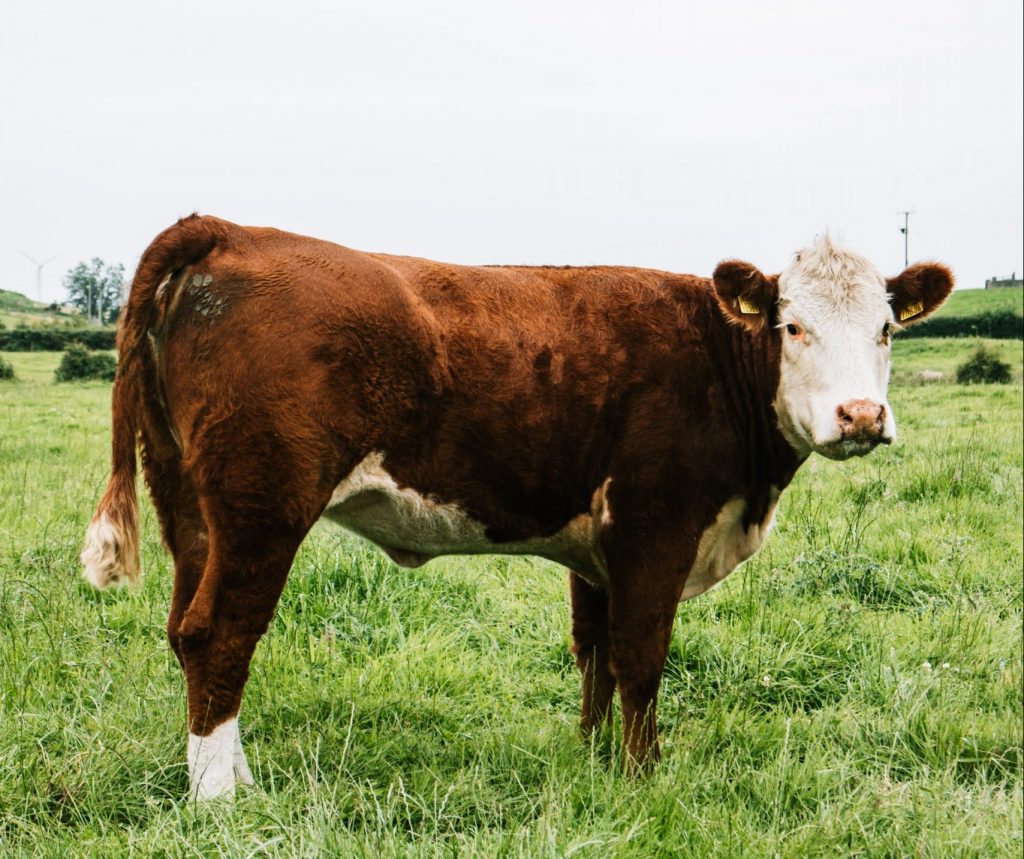Cultivating meat in laboratories is the future of agriculture and Wales should be at the forefront of this innovation, writes Dan Ward.
Firstly, I hear you ask, what is cellular agriculture?
Cellular agriculture is the production of animal products through cell-based cultures. The goal being to produce food and animal products without the need to raise and slaughter any animal.
Secondly, what does this have to do with Wales?
Wales is in a unique position to both benefit from and be negatively impacted by cellular agriculture. Over 80% of Wales land mass is managed for agriculture of which approximately 70% is managed for animal agriculture.
Much of Wales is unprofitable marginal land for farming, and people are eating less meat and dairy as meat free or ethical food grows in popularity.
Wales is also moving to a different subsidy regime for farming and land management – which could be aligned with cellular agriculture pressures.
Additionally, Wales has the infrastructure, expertise and legislative environment to develop and profit from cellular agriculture. The universities across Wales are already equipped for biological sciences and have close links with agriculture.
South Wales in particular is connected to the hi-tech corridor of the M4 to places like Oxford and London, tapping into the wider UK bioscience industry in which the UK is a world leader.
“It is much more efficient to grow cell-based meat and seafood than it is to grow whole animals to market condition or to grow or capture wild fish and shellfish.”
Wales has its own devolved powers which allow it to adapt policy for the development of cell-based agriculture, to invest and stimulate a Welsh cellular agriculture industry, and to ensure traditional agricultural businesses aren’t left stranded.
Competition with cellular agriculture could well threaten what is already a challenging environment for agriculture in Wales.
Cellular agriculture isn’t limited to creating meat such as beef, chicken and lamb but can create any animal product. This means you could create seafood such as bluefin tuna, dairy, and animal products such as leather, wool and fur.
It may well be that areas such as seafood and production of animal textiles are some of the best avenues for initial cellular agriculture development. Seafood such as bluefin tuna steak (with its lean and even protein structures) should be easier to create than equivalent large pieces of meat such as beef steaks.
Equally, it is likely that disruption can happen without full replacement of existing animal products. For example, 35% of the market for milk is actually for ingredients such as whey and casein protein. If lab grown protein can outcompete proteins from traditional dairy sources that alone might be enough to ruin traditional dairy businesses.
Investing in cellular agriculture would help Wales economically as well as delivering a host of other benefits. Enabling Wales to produce more of its meat, seafood and animal based textiles would significantly reduce Wales global footprint and impact on global biodiversity, pollution, deforestation and carbon emissions.
It is much more efficient to grow cell-based meat and seafood than it is to grow whole animals to market condition or to grow or capture wild fish and shellfish.
In fact, it is estimated that cellular agriculture culture uses 90%+ less resources (energy, land, water). This lines up with many of the Welsh Government’s legally binding environmental objectives.
Innovative. Informed. Independent.
Your support can help us make Wales better.
Anticipating the future and investing now in cellular agriculture for Wales can help it provide a just transition for its agricultural communities. Welsh agriculture is going to change anyway with new land management subsidies which will create a system of public money for public goods.
This inevitably involves reducing stocking densities of Welsh livestock with many Welsh farms earning more for delivering environmental services than they do for livestock production in the near future.
Moving to a Wales where farmers have diverse breeds and varieties at low stocking densities and high quality nutrient dense organic grasslands and other crops providing environmental benefits aligns well with providing the gene stock and feedstock for cellular agriculture.
The same applies for Welsh marine ecosystems in that healthy robust marine ecosystems would provide a diverse and plentiful array of gene stock and potentially feedstock such as seaweed for cell-based cultures. Even food waste could be used to feed cell cultures.
“If we can grow a steak we can also probably grow a liver or kidney for human organ transplants.”
In parallel to cellular agriculture, Wales can specialise in producing the highest grade sustainable produce both from traditional livestock and seafood, with globally recognised high standards for animal welfare, food quality and environment impact.
There will likely still be a market for animal products from real animals for a time to come but it won’t be long before cellular agriculture starts to have a real financial impact on traditional agricultural systems.
So how can Wales kick start and benefit from cellular agriculture?
- Explore how Wales public and private institutions are set up and their ability to start working on cellular agriculture. Are the expertise and facilities already here?
- Start the conversation with farmers and fishermen and explore with them what the challenges and opportunities of cellular agriculture might be and how they can be part of and benefit from this transition.
- Ensure the regulatory environment in Wales is ready for cellular agriculture and creates an environment where innovation can prosper but which maintains ethical, social and environmental standards.
- Make sure that areas such as intellectual property, copyright and ownership are modernised to reflect these transformative changes, ensuring protection of genetic commons and that benefits are shared by society.
The great news is that cellular agriculture isn’t just limited to food, leather or dairy.
If we can grow a steak we can also probably grow a liver or kidney for human organ transplants. There is huge scope in the development of cell cultures for both food products and human health care.
It would be wise to start exploring what’s possible now or risk missing out on the development of this world changing technology, and becoming the unwitting recipients of negative impacts from its development.
All articles published on the welsh agenda are subject to IWA’s disclaimer.





